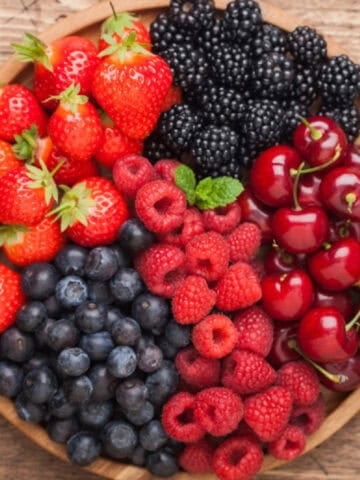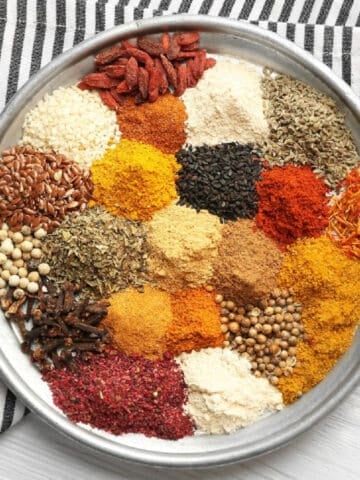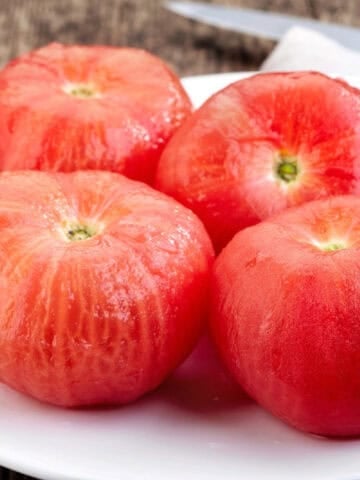Food gifts, whether homemade or purchased, hold a special place for various reasons. They are a universal language of love, care, and thoughtfulness, transcending cultures and traditions worldwide.

Jump To
Food gifts can be as individualized as their recipients. Much like any other present, each one is perfectly matched to the recipient's interests, cultures, or religions, except that they’re always useful and never cause clutter. What could be better than that?
The meaning behind food gifts
Food is a universal need and pleasure. Gifting food is seen as a way to nourish both the body and soul, creating an immediate sense of warmth and satisfaction.
In many cultures, food is at the heart of social interactions and celebrations. Offering edible gifts is a way to partake in this tradition, honoring the recipient's heritage or introducing them to new culinary experiences.
Sharing food is often associated with comfort, care, and hospitality. A food gift can serve as a gesture of support during difficult times, a celebration of a special occasion, or simply a way to say, "I'm thinking of you."
Homemade food gifts
Homemade food gifts carry a personal touch that embodies the effort, time, and love invested by the giver. Whether it's a batch of cookies, a jar of homemade jam, or a meticulously prepared meal, edible gifts are often tailored to the recipient's tastes and preferences, making them feel truly special.
They allow the giver to get creative, experimenting with flavors, ingredients, and packaging. This customization makes the gift unique and can be catered to the recipient's specific dietary needs, preferences, or hobbies.
“I like to give homemade vanilla to my baking friends as a food gift. It's easy to make with two ingredients, and gifting a bottle of really good vanilla is always appreciated.”
— Jere' Cassidy, One Hot Oven
Store-bought gifts
Purchased food gifts offer convenience for those who may not have the time or skills to create homemade treats. It is an easy alternative without compromising on thoughtfulness. The variety available means finding something that perfectly suits the recipient, from gourmet baskets to specialty sweets.
Buying food gifts, especially from local or small businesses, supports the community and artisans who pour their expertise into creating something unique and delicious. It's a way of giving back while giving to someone you care about.
Purchased food gifts can be a customized fruit basket, a variety pack of hot sauces, specialty items for the recipient's religious feasts, or something your town is famous for. Think artisanal, small batch, and local; you’re on the right track to that special gift.
If they make drinks at home, what about a mixologist kit? Or a good bottle of wine? While not technically a food, a drink is almost always universally appreciated. One caveat, of course, is to know your recipient before gifting alcohol. If they’re in recovery, choose something else besides alcohol.
“One of my friends loves salt, so I like to buy her a different salt-tasting kit each year. She loves discovering the different tastes and uses, and it's a fun and well-received gift.”
— Jane Chapman, Pocket Friendly Recipes
Gift exchanges
Office Christmas party gift exchanges are one of the best places to give the gift of food. Whether you choose homemade or storebought, you can’t go wrong with something edible. Often, these gifts are a hot commodity at office parties and get swapped back and forth quite a bit.

A box or tray of homemade Christmas cookies and candies means the recipient doesn't need to bake as much for another upcoming event. A specialty loaf of fresh bread from a bakery paired with a pot of homemade jam makes a unique gift. Or, a spiral-cut ham means you’ve saved someone time and effort in their holiday feast.
The enduring popularity of food gifts
The act of giving food as gifts is timeless. It taps into the basic human experiences of eating and sharing, creating memories, and strengthening bonds. The versatility and wide appeal of food gifts ensure they remain a popular choice for expressing a range of sentiments, from gratitude and love to sympathy and congratulations.
This post originally appeared on Food Drink Life.






Leave a Reply